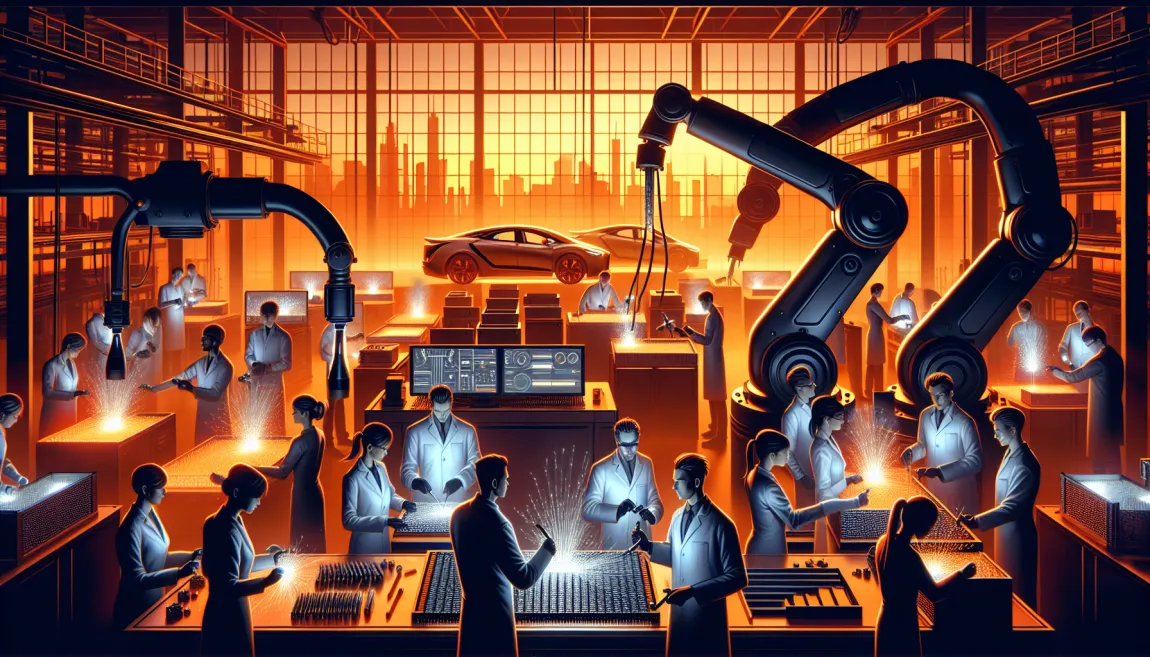Comprehensive Analysis of the 'Day of Technical Innovation on Busbars' Event
The article sheds light on an important technical meeting that took place at the CLAYENS site, representing a significant step toward innovative strides in busbar manufacturinga crucial component for both the automotive and energy sectors. The collaboration between Syensqo and CLAYENS, noted for its focus on leveraging advanced materials for overmolding busbars, highlights a strategic approach to addressing the growing demands of the electric vehicle market and industrial infrastructures.
Busbars, traditionally made from copper or aluminum, are fundamental in distributing power across electrical systems. The shift toward electrification of vehicles and the expansion of modern industrial applications elevate the necessity for busbars that not only conduct electricity efficiently but also maintain integrity under high voltage conditions. These requirements pivot the busbus technology into new realms of material science and electrical engineering, both of which were the core focus areas during the meeting.
Overmolded busbars, a central topic during the session, are especially notable. With their encapsulation in durable insulative materials, these components promise enhanced safety and functionality by preventing short circuits and physical damage, thereby aligning with the stringent requirements of high-performance and safety-critical applications. This technological progression not only answers the immediate needs of efficiency and safety but also contributes to the reliability and durability of electrical systems in electric vehicles and large-scale industrial setups.
CLAYENS role as a specialist in metal-plastic engineering plays a crucial part in this narrative. The firms expertise signifies a bridge between traditional metalworking and modern polymeric solutions, offering a glimpse into the interdisciplinary approach required to innovate within the electric mobility and energy sectors. The challenge of metal cutting thickness, as mentioned in the article, underlines ongoing technical hurdles that need to be addressed to refine the process further and achieve optimal results.
Syensqo's involvement brings a layer of material specialization that complements CLAYENS' engineering efforts. By supplying materials that cater specifically to the stringent conditions of overmolded busbars, Syensqo supports the venture not just by providing raw materials but by contributing to the engineering solutions that these high-demand scenarios require. Therefore, materials engineering emerges as a pivotal aspect of busbar technology, pushing the boundaries of what these components can withstand and accomplish.
The collaborative effort between Syensqo and CLAYENS is reflective of a larger industry trend towards cross-company partnerships to leverage diverse expertise. Such collaborations offer a path forward in solving complex technological challenges that single entities might struggle with. It emphasizes the significance of synergy in technological innovationa requisite that is becoming increasingly crucial as the technical demands of products and their applications continue to evolve.
Finally, the meeting underscores a promising future for innovation in the field of high-voltage busbars, pivotal for the progress in electric vehicles and robust industrial systems. This collaborative endeavor not only brings to the fore the complexities involved in adapting existing technologies to new challenges but also the proactive approach companies must undertake to stay ahead in a rapidly evolving market landscape.
View original article:
https://www.clayens.com/index.php/en/sintex-group-news/day-technical-innovation-busbars-syensqo-and-clayens



Leave a Reply